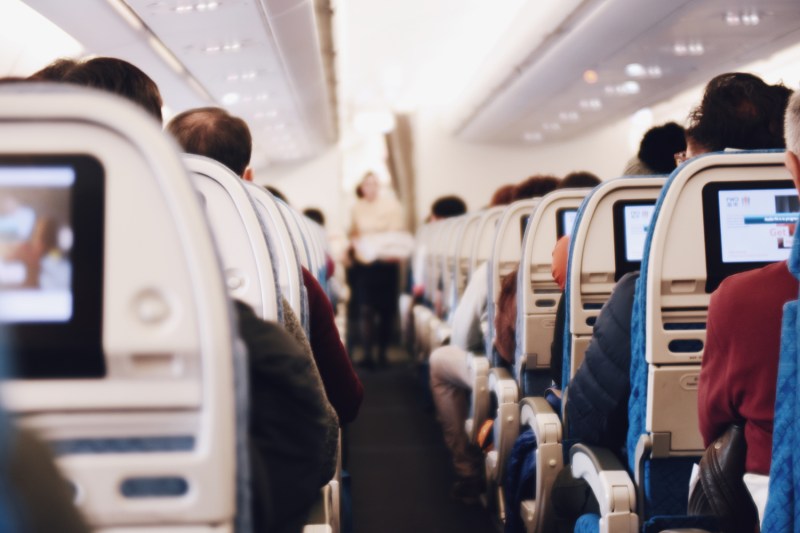Times are tough in the travel industry. Airlines, in particular, are getting creative with where and how they pinch their pennies (like standing-room-only cabins). Now, one tech startup is pushing a way to cut the fat by literally cutting the fat — or, more specifically, measuring it. Their plan? To weigh every passenger before they board.
British-based Fuel Matrix is in talks with airports in the United Kingdom to find discreet ways to weigh passengers. How they’ll be weighed has yet to be determined. It would likely occur using pressure-sensitive pads during the check-in process or through full-body scanning technology. The company promises that all of the data collected would be kept strictly confidential under Europe’s recent GDPR program designed to protect public information.

The concept boils down to simple economics. Heavier planes require more fuel and carrying and burning more fuel costs more money. The more accurately an airline can predict the fuel needed for each flight, the better it can predict how much fuel each plane actually needs. The problem is that most European airlines are relying on 10-year-old charts that overstate how much the average passenger and their luggage weighs. That means most planes are carrying excess fuel unnecessarily and, in turn, wasting money in the process.
Fuel Matrix’s CEO, Roy Fuscone, confirms that if airlines knew they were carrying a lighter load, they could fly with less fuel. “It’s critical to know the actual weight an airline is carrying to ensure the correct fuel uplift,” he told Lonely Planet. The ideal weight for airlines is known as “zero-fuel weight,” which equals the weight of an airplane, plus all its passengers and contents, less the fuel weight. The more accurately they can predict this number, the more efficiently they can fly. Fuscone points out that this not only saves the airline money but substantially cuts carbon emissions as well.
The concept isn’t new. In 2015, Uzbekistan Airways announced a new “flight safety” policy that included weighing passengers at check-in. Finnair piloted a program in 2017 to voluntarily weigh passengers to collect general data. It’s difficult, however, to imagine any U.S. airline making a similar move. In an age of rising air rage incidents and passengers being beaten into submission, domestic air carriers already have their hands full with maintaining a decent public image. Why add the potential for “fat-shaming” to the mix?



